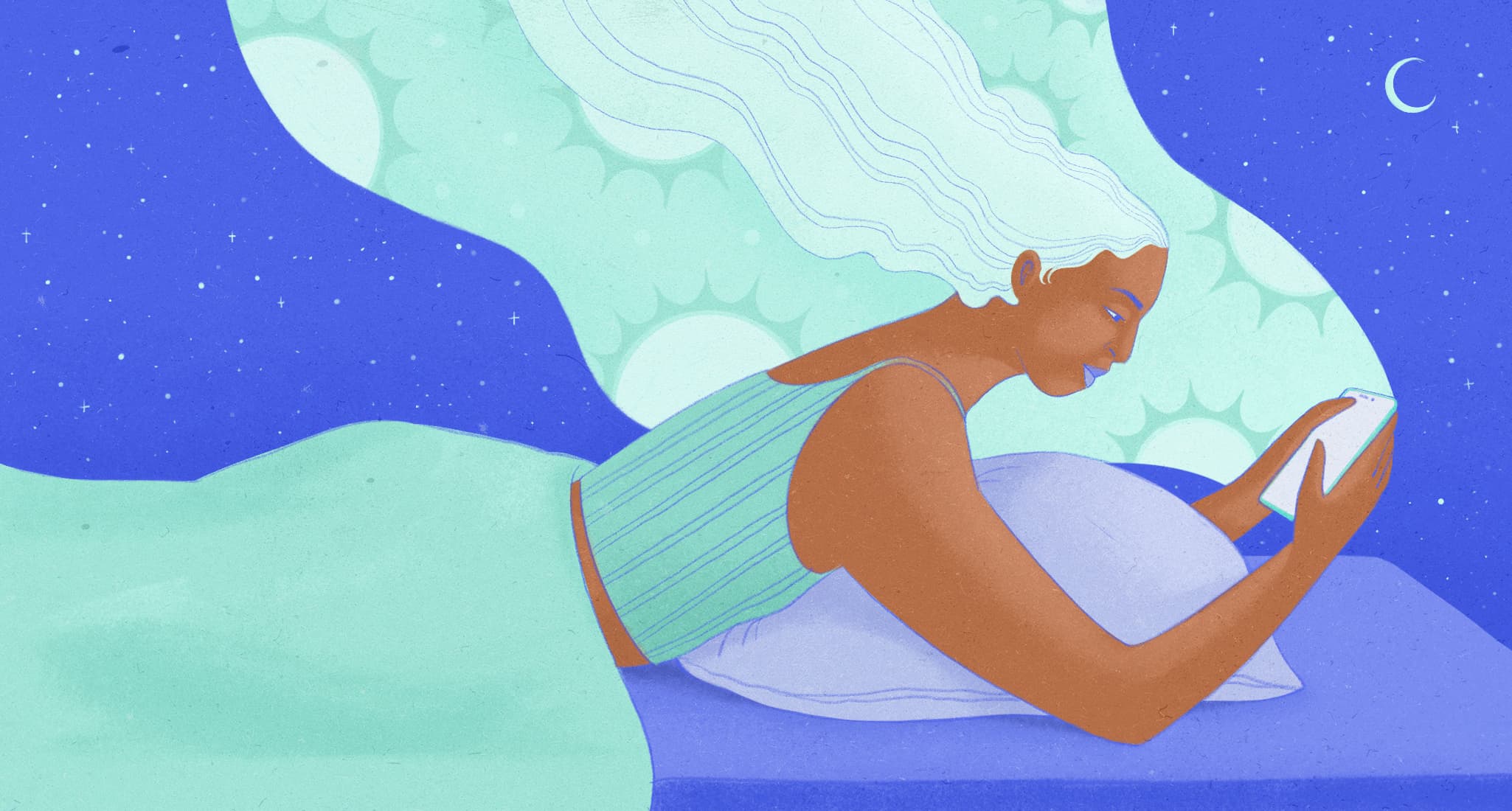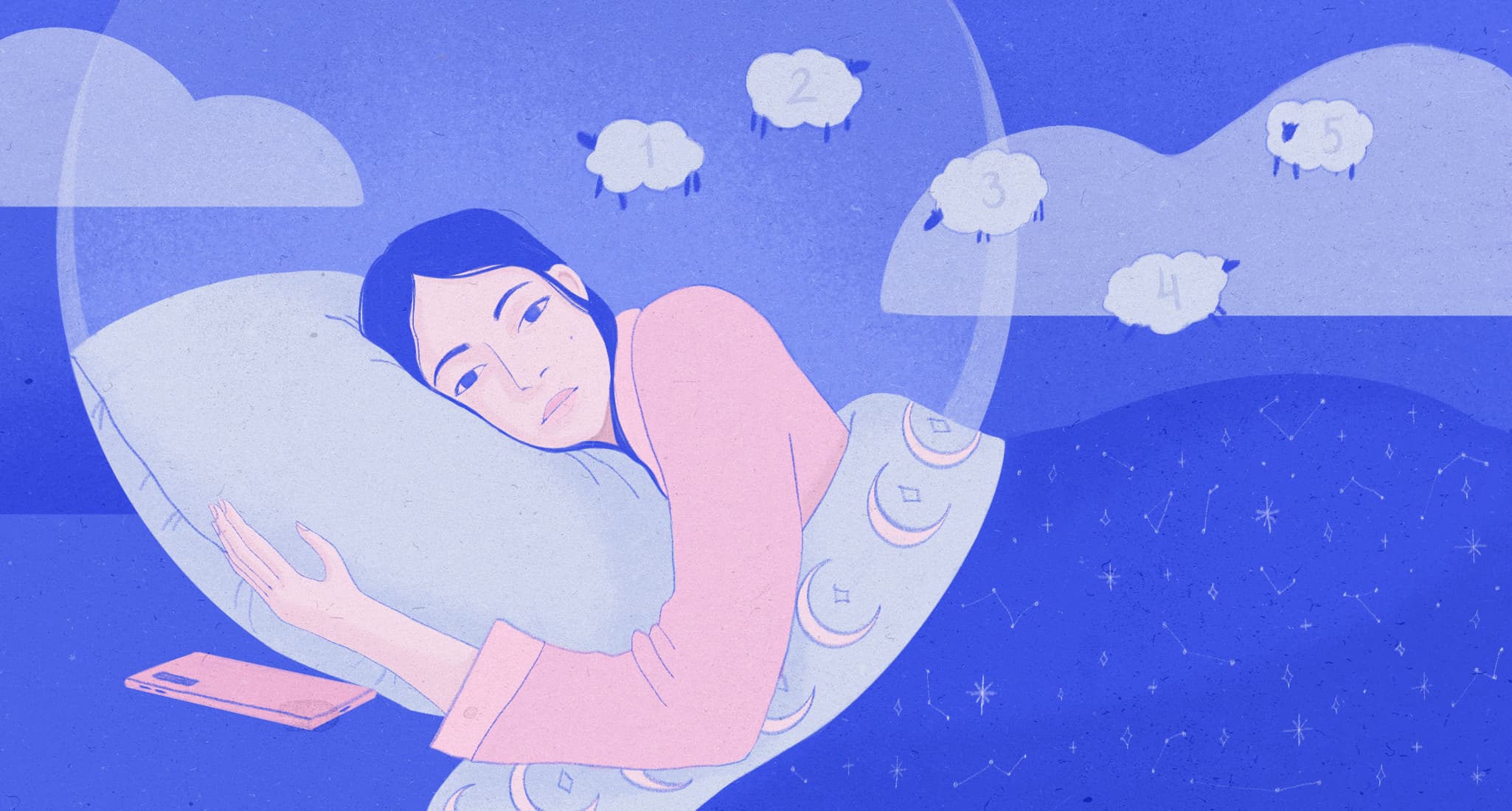
Are You Guilty of Screen-Time Before Bed?
Just because keeping your phone in bed with you is common doesn’t mean it’s healthy. The blue light from the screens on our beloved devices can trick the brain into thinking it’s still daytime, messing up our circadian rhythm, the physiological cycle that informs our sleep. Andrew Varga, M.D., a neurologist and sleep medicine specialist at Mount Sinai Hospital in New York explains, “Electronic devices with backlit screens emit a very high percentage of blue wavelength light. Exposure to blue light from any source—including TVs, cell phones, laptops, e-readers and tablets—late in the day has the effect of advancing our circadian phase, meaning it makes it so that one will become naturally tired later in the night.” The lesson here? Invest in an old-school alarm clock so you can leave your phone outside the bedroom.
Is Your Mattress Over 10 Years Old?
PSA: One study found that simply swapping out old mattresses (average age 9.5 years) with new ones improved stress and reduced back pain for participants. So, what are you waiting for? If your mattress is showing signs of wear (like deep impressions over 1.5 inches) and you wake with aches and pains that fade within a couple of hours, it may be a tell-tale sign your mattress lacks support. Thankfully, Serta has two options that might be the right fit.
Is Your Bedroom Clean?
Now that working from home is a new normal, many of our bedrooms double as offices. Great for saving space, bad for saving sleep. Visual clutter can generate stress, which is a known barrier to quality sleep. Disorganized items in your bedroom may reinforce the sensation of having too many “loose ends,” generating anxious feelings that may make it harder to relax your mind when you want to fall asleep. While you don’t necessarily need to go full-on Marie Kondo to get your bedroom organized, it’s worthwhile to review what items you don’t really need and to spend just a few minutes each day picking up clutter so that it doesn’t build up and feel overwhelming.
Beyond visual cleanliness, you also want to improve environmental cleanliness. In a recent study, air pollution was shown to have a negative effect on sleep. Small particles in the air, like dust and dirt, can irritate your throat and sinuses, which may lead to breathing issues and disrupt your slumber. To improve your bedroom’s air quality, invest in an air purifier to eliminate allergens and pollution. Or, if you live in a dry climate, try using a humidifier to add moisture to the air. And finally, consider cleaner, eco-friendly products when it comes to sheets and mattresses (like the iComfortECO) to keep allergens and toxins at bay.
Do You Have the Right Sleep Accessories?
By this we mean, a sound machine to reduce noise pollution, an eye mask if exterior light is a problem, dim lamps that signal to your body that it’s time to wind down and finally, a thermostat set below 70 degrees. The sweet spot for temperature? Between 67 and 69 degrees. An elevated room temperature can make it more challenging to fall asleep because it raises your core body temperature, while a too-cold room (though not as big of an issue) can still be disruptive.

Do You Know Your Sleep Style?
Some nights, sleep comes easily. Other nights, you have to be curled into the fetal position—covers between your legs—just to catch a wink. Knowing your preferred sleep position can help aid in this dilemma, as it allows you to find a mattress and pillow that support you best.
According to The National Sleep Foundation, sleeping on your back is the least popular position (only eight percent of people do it) but it’s agreed upon that it’s the healthiest option for most people. When you sleep on your back, it’s important that each of your body’s pressure points is supported equally. A mattress with random lumps or soft spots will cause aches and pains. Look for a model that’s firm all over.
The majority of adults prefer side sleeping, which also has its benefits (better airflow and less neck pain, to name a few). Side sleepers will see a huge improvement from a mattress that’s more flexible and soft. Why? It’s more forgiving when it comes to the curves of your body. Too-firm mattresses can cause side sleepers to wake up feeling stiff. If your mattress is on the firmer side (and a new one isn't in the budget), try opting for a memory foam topper.
Not sure your preferred style? No problem. The Serta Perfect Sleeper mattress fits a variety of sleep positions and is a smart choice for a more restful sleep no matter how you move your body.
Do You Have a Consistent Sleep Schedule?
Schedules aren’t just about when you close your eyes and when you wake up. It also means eating your meals, taking medications, exercising and even watching television at about the same time every day to keep your body clock in sync. Yes, it’s tempting to go to sleep late on Friday night and “make up” for it by sleeping in on Saturday, but varying your sleep times can be harmful to your restfulness. Try to work toward waking up and getting out of bed at the same time every day—regardless of when you have work—to get your sleep and wake times on track. “Much of it is about personal limit-setting, recognizing the environmental factors and personal habits that have the capacity to disrupt one’s sleep schedule,” Dr. Varga says, “and trying to minimize the variance in daily sleep onset and offset time, particularly between weekend and weekday times.”
Are You a Midnight Snacker?
Chowing down too close to bedtime can mess with your sleep—plain and simple, friends. “Lying down close to eating can cause acid reflux, which can arouse you or wake you periodically during the night,” says Samantha Cassetty, RD. “This situation limits that deep, restorative sleep you need to function well during the day.” Her suggestion? Finish eating at least two hours before hitting the hay. Oh, and you know when you have a glass of wine after a long day and your eyes get a little droopy? Though alcohol does make you drowsy, Cassetty warns that “going above the daily suggested caps (one drink a day for women, two for men) can really disrupt your sleep patterns.” Her tip? If you’re going out for dinner, sit out the first round of drinks (before you order). “Catch up with your friends, glance at the menu, have some water and then have a glass of wine or a non-sugary cocktail.”
Shop Sleep Essentials

Angela Pares
VP, Design + Branded Content
- Oversees brand creative across PureWow, Coveteur and GMG’s social portfolio
- Leads the branded content team (design and editorial) from ideation through execution on all sponsored campaigns
- Studied English and Italian at University of Mary Washington
read full bio





